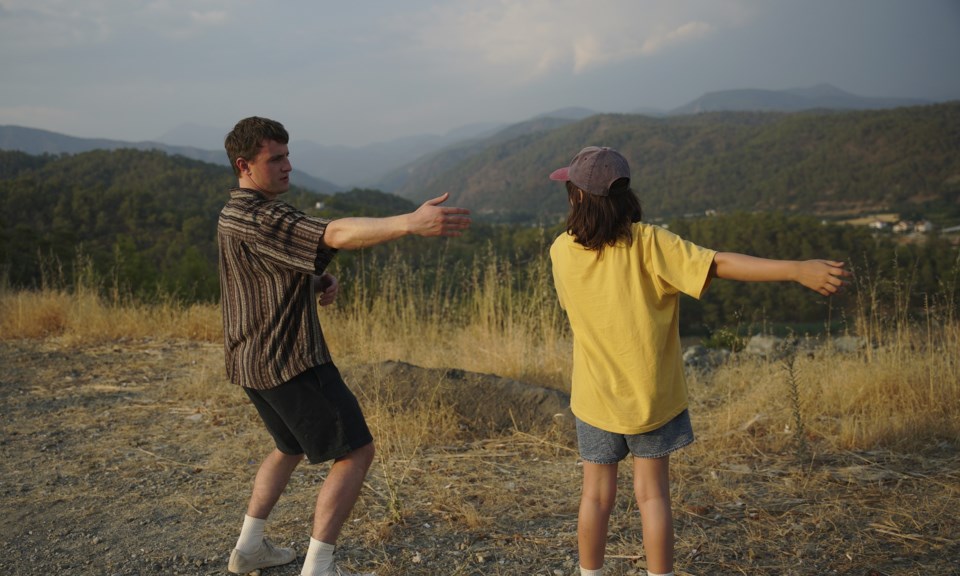If one were to rank the most difficult adolescent age, 11 may not be the first but it is certainly up there. It is just a horribly, hilariously awkward moment of still being very much a kid but with an agonizingly heightened awareness of all those teenage things that are just out of reach. And it is just a moment after all, but when youтАЩre in it, when you are just 11, the days are long, the weeks move slowly and years feels like a lifetime.
In тАЬ ,тАЭ writer-director Charlotte Wells invites the audience to go back to that age, in memory at least, with Sophie (Frankie Corio), age 11, and her father Calum (Paul Mescal), almost age 31, on holiday at a resort in Turkey. Sophie is the one remembering here, 20 years later as she turns the age her father turned on that trip, which is pretty ordinary as far as middle-class vacations go in the mid-'90s. But this holiday will come to possess extraordinary significance because itтАЩs the last one Sophie will ever have with her dad.
We donтАЩt learn many facts about Sophie and Calum. He obviously had her young and is not with her mother anymore, though they still say тАЬI love youтАЭ on the phone, which confuses Sophie. But from their first moments together on screen, there is a palpable tenderness between the two, even if they donтАЩt get to spend much time together frequently. Young fathers, especially the single sort, donтАЩt get a lot of love from the movies and тАЬAftersunтАЭ is partly an ode to that very specific, very sweet bond between father and pre-teen daughter that both kind of understand will change into something else soon.
Calum does not have a lot of money, but he has enough for this little resort, which has a pool and water slides and some excursions. ThereтАЩs a beach, too, a pool table, some arcade games and karaoke one night. It is not, one might say, especially aspirational or Instagrammable. ItтАЩs what life looks like, or looked like then, when everybody wasnтАЩt pretending to be a celebrity all the time. And thank goodness for the revelation that is Frankie Corio, who dresses, looks, acts and feels like a real kid and not an actor reading lines that an adult has written. Mescal, too, gets to flex, beautifully, in a complex role that doesnтАЩt involve a tortured romance.
But this is just part of the lovely, evocative authenticity of тАЬAftersun,тАЭ in which an adult woman is trying to both remember and make sense of the father she loved dearly and has realized she also never really knew.
ItтАЩs a lot of pressure to put on one week in Turkey when you were 11 and not expected to be checking in on the mental well-being of your parent, but life is cruel like that. Sophie can remember exactly what she wore to dinner one night, the layout of books on the table in their room and intense specifics about the random teenagers she plays pool with a few times. But she canтАЩt piece together the mystery of Calum.
тАЬAftersunтАЭ doesnтАЩt play like a traditional narrative, Wells and cinematographer Gregory Oke bring you into a kind of dream state. Sometimes youтАЩre privy to entire тАЬscenes,тАЭ other times youтАЩre straining to see whatтАЩs happening in the reflection of a television screen.
Memory, of course, is imperfect тАФ especially when colored with the trauma of loss. Wells, in her first feature, embraces the inherent messiness of it all perfectly. This is a collage of emotion pieced together from photographs, a souvenir rug, shaky home videos in which someone is inevitably sulking or protesting the video, the mind, of course, and the horrible/wonderful songs of that summer, like Bran Van 3000тАЩs тАЬDrinking in L.A.тАЭ or the Macarena. And though it will make your heart ache, for Sophie and Calum, for the times you were casually cruel to a loved one, for the days and moments you strain to remember now, it is one of those cinematic experiences that you won't soon forget.
тАЬAftersun,тАЭ an A24 release in theaters Friday, is rated R by the Motion Picture Association for тАЬbrief sexual material and some language.тАЭ Running time: 96 minutes. Four stars out of four.
___
MPA Definition of R: Restricted. Under 17 requires accompanying parent or adult guardian.
___
Follow AP Film Writer Lindsey Bahr on Twitter: .
Lindsey Bahr, The Associated Press



